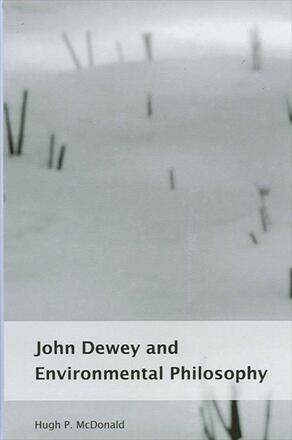
John Dewey and Environmental Philosophy
Alternative formats available from:
A comprehensive look at how John Dewey's ethics can inform environmental issues.
Description
Hugh P. McDonald's John Dewey and Environmental Philosophy breaks new ground by applying Dewey's insights to a new approach to philosophy of the environment; the concern for the rights of animals; the preservation of rare species, habitats, and landscapes; and the health of the whole ecology. The book summarizes much of the current literature on environmental ethics, concentrating on the writings of major figures in the movement: Tom Regan, J. Baird Callicott, Holmes Rolston, and Bryan Norton. The heart of the book consists of a detailed analysis of Dewey's ethics, his theory of intrinsic value, and his holistic approach to moral justification. Arguing against the idea that Dewey's philosophy is anthropocentric, McDonald makes a strong case that using Dewey's philosophy will result in a superior framework for environmental ethics.
Hugh P. McDonald teaches philosophy at New York City College of Technology (CUNY). He is the author of Political Philosophy and Ideology: A Critique of Political Essentialism.